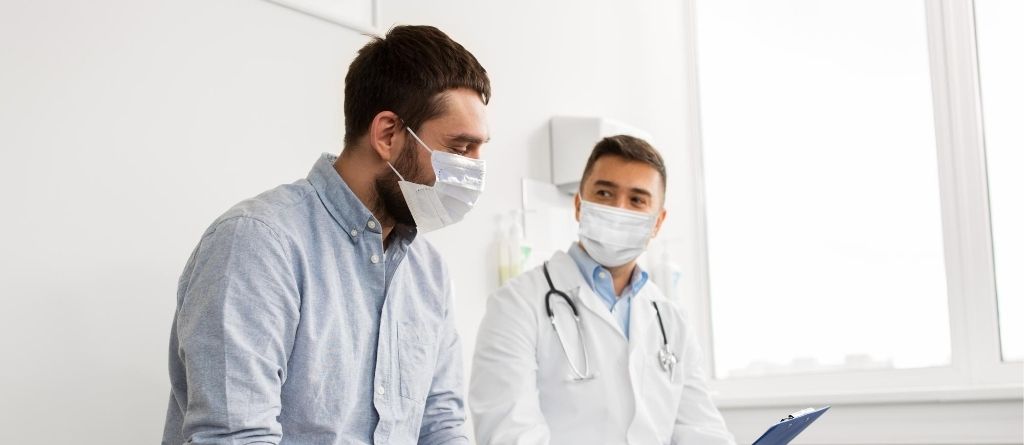Recovering from hernia surgery is a critical phase that requires attention and care to ensure full recovery and prevent complications. Whether you’ve undergone an open, laparoscopic, or robotic-assisted procedure, effective post-operative care can significantly impact your healing journey. At Premier Surgical New Jersey, we prioritize patient well-being and want to share essential post-hernia surgery care tips to help you navigate this recovery with confidence.
Understanding Hernia Surgery
Hernia surgery is performed to address tears or weaknesses in the abdominal wall muscles that allow tissues or organs to protrude. Depending on the hernia’s size, type, and location, different surgical methods—such as open repair or minimally invasive laparoscopic surgery—may be utilized. Understanding the basics of your surgical procedure can help you adhere to your post-operative care plan effectively.
Immediate Post-Operative Care
The first few days following hernia surgery are crucial for initial healing. Patients are typically monitored for a few hours in the recovery room until the effects of anesthesia wear off. During this time, it’s essential to follow the surgeon’s instructions closely to minimize the risk of complications.
Managing Pain and Discomfort
Pain and discomfort are natural after-effects of surgery, and appropriate management can aid in recovery. Your healthcare provider will likely prescribe pain medications to control discomfort. It is important to take these medications as directed to keep pain manageable. Additionally, apply ice packs to the surgical area as advised, to reduce swelling and bruising.
Activity and Movement
While rest is paramount, gentle movement is equally vital to prevent blood clots and promote circulation. Begin by walking short distances within your home, gradually increasing your activities as directed by your healthcare provider. Avoid strenuous activities, heavy lifting, or any actions that strain the abdominal muscles for at least six weeks post-surgery. Listen to your body and stop any activity that causes pain or discomfort.
Dietary Adjustments
A balanced diet plays a significant role in the recovery process. Immediately after surgery, it’s common to start with a light, bland diet before gradually returning to regular meals. Ensuring adequate fiber intake can prevent constipation, a common post-surgery issue due to reduced mobility and pain medications. Incorporate plenty of fruits, vegetables, and whole grains into your meals and stay hydrated with water, herbal teas, and clear broths.
Wound Care and Hygiene
Proper wound care is essential to prevent infections and promote healing. Keep the surgical site clean and dry, following any specific instructions provided by your surgeon. Typically, you should change dressings as advised and watch for any signs of infection, such as increased redness, swelling, or discharge. Refrain from soaking in baths or swimming until your healthcare provider confirms it’s safe to do so.
Monitoring for Complications
Despite the precision of modern surgical techniques, complications can occasionally occur. Common signs to watch for include severe pain, fever, increased redness or swelling around the incision, persistent nausea or vomiting, and difficulty urinating. If you experience any of these symptoms, seek medical attention promptly. Premier Surgical New Jersey is always available to address post-operative concerns and ensure your recovery proceeds smoothly.
Gradual Return to Normal Activities
Resuming normal activities is a gradual process that should align with your body’s healing pace and your surgeon’s advice. Returning to work, exercise, and other daily routines should be undertaken with care, initially adapting roles or chores to minimize exertion. Premier Surgical New Jersey can provide guidance on establishing a safe timeline for returning to these activities.
Emotional Considerations and Support
Recovering from surgery is not only a physical but also an emotional journey. It’s normal to feel a range of emotions, from relief to anxiety, throughout the recovery process. Engaging with support groups or counseling services can provide reassurance and help manage stress. Open communication with family members and your surgical team can also contribute positively to your emotional well-being during recovery.
Follow-Up Appointments
Scheduled follow-up appointments are essential to monitor healing progress and address any potential issues. Keep all appointments with Premier Surgical and communicate any concerns or questions about your recovery. These visits allow your surgeon to assess recovery, adjust care plans, and ultimately ensure a successful outcome.
Tailored Care at Premier Surgical New Jersey
Choosing the right surgical team is critical for both the procedure and post-operative care. At Premier Surgical New Jersey, we offer a comprehensive approach that includes personalized post-surgery care plans tailored to meet individual patient needs. Our experienced team of surgeons and medical professionals are dedicated to ensuring you receive the best possible care before, during, and after hernia surgery.
Take the first step toward recovery with confidence. If you’re considering hernia surgery or require post-operative support, Premier Surgical New Jersey is here to assist you. Contact us today to schedule a consultation and discover how our personalized care approach can benefit your journey to wellness. Our commitment is to provide excellence in surgical care, ensuring you return to an active, fulfilling lifestyle.
Learn more: When to Consider Hernia Repair Surgery from Premier Surgical in New Jersey

